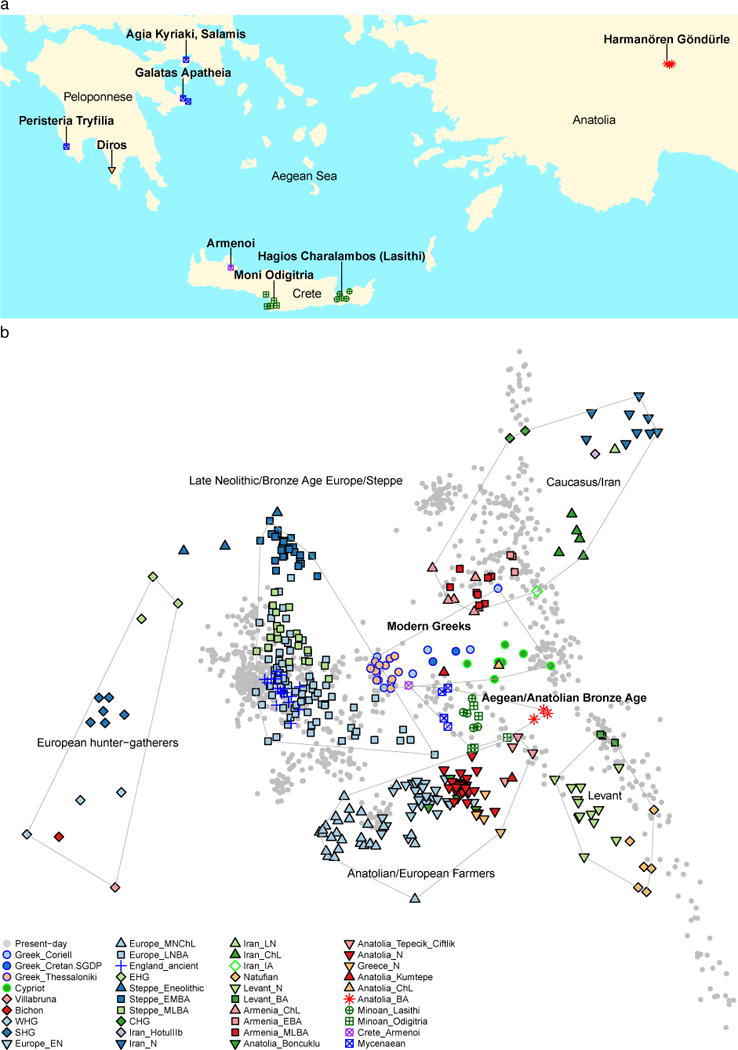Sing, Goddess, Achilles’ rage,
Black and murderous, that cost the Greeks
Incalculable pain, pitched countless souls
Of heroes into Hades’ dark,
And left their bodies to rot as feasts
For dogs and birds, as Zeus’ will was done.
Who are the Greeks? Where did they come from?
We have enough ancient DNA now to answer many of these questions. It seems that the largest component of Greek ancestry derives from the expansion of farmers out of Anatolia ~9,000 years ago. But at some point in the latter phases of prehistory, another wave of migrants pushed out from the east, with affinities to peoples as far away as Iran. And then during the Bronze Age, another pulse of migration arrived, likely correlated with the arrival of Greek-speaking peoples as such, the Mycenaeans. Finally, there is a fair amount of circumstantial evidence that the peregrinations of the pagan Slavs during Late Antiquity and the early Medieval period left their imprint on many Hellenes, in particular in the north of the country, around Salonika.
But that’s just genetics. What about culture? In terms of religion, Greek paganism is a composite. Zeus pater is clearly a standard Indo-European sky-god. Jupiter in Latin. Dyáuṣ Pitṛ́ for the ancient Aryans. In contrast, gods such as Athena seem to have synthetic, and at least partly pre-Indo-European origins. Finally, Dionysius was possibly an eastern import relatively late in prehistory.
Though the Greek language is definitely Indo-European, there are also extensive loanwords indicating an indigenous substrate. For example, words with the syllabic fragment –nth, such as in Hyacinth, are likely native. The Greeks settled amongst peoples who had a long history of settled life, and had developed their own civilization.
The point is that it is probably not even wrong to say that the Greeks as we understand came from elsewhere, or, that they were indigenous. To be Greek probably emerged in the period after 2500 BC, as Indo-Europeans mixed with the local cultures, and created something new. Autochthonous.
